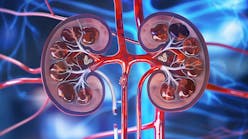A series of advancements in genetically engineered cell therapies demonstrate early efficacy and safety in patients with blood disorders for whom standard treatments have been unsuccessful, according to data showcased today during last month’s 55th American Society of Hematology (ASH) Annual Meeting and Exposition in New Orleans.
Today, many patients with newly diagnosed blood disorders – ranging from cancer to rare genetic conditions – respond well to modern treatment regimens. However, for more than half of newly treated patients, therapies fail to work or patients experience a relapse that may negatively affect their prognosis. Now an emerging field, dubbed “precision medicine,” aims to improve success rates by attacking the specific targets that are responsible for a patient's disease. Using a patient's own re-engineered cells to attack their disease is an example of this approach. Building on the existing concept of turning the immune system into a disease-fighting weapon, this new field of medicine adds innovative technologies that transform healthy cells into “super” cells that can more effectively combat disease.
Several studies presented during the meeting detail results using one method known as chimeric antigen receptor (CAR) cell engineering. The CAR process starts when T cells (naturally occurring immune cells) are extracted from the blood of an individual and outfitted with two powerful features: a receptor on the outer cell surface that recognizes a protein called CD19 present on most leukemic cells and a powerful mechanism inside the cell that triggers it to expand and proliferate once attached to the targeted protein. With these new engineered features, the T cells are injected back into the patient, now primed to seek and destroy cancer cells. Learn more about these studies and other developments at ASH by visiting the society’s online newsroom.





